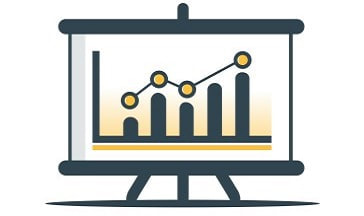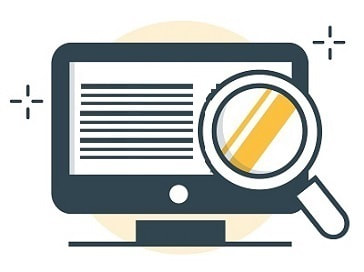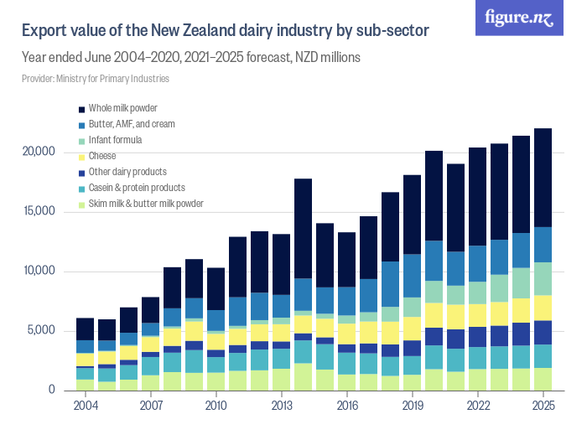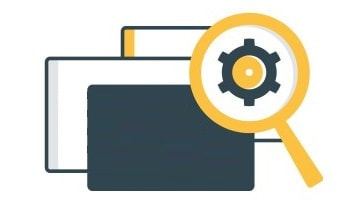Commodities Trading in New Zealand
Commodities is a broad asset class, encompassing precious metals, oil & gas, textiles, agricultural products and more. This guide outlines everything you need to know about trading from New Zealand.
Updated 22 July 2024
Know This First: A commodity is a raw material or primary product used to create finished products. For example, a construction company would buy steel, copper and other metals in bulk. Another example would be a food manufacturer purchasing large quantities of soybeans and corn. Producers trade commodities to acquire the materials needed in their supply chain, or hedge risk, supposing commodity prices might rise in the future.
Traders can speculate on commodity markets using various financial instruments. In this guide, we explore how New Zealand traders can invest or speculate with commodities.
Disclaimer: All investment carries risk. This guide is for educational purposes only and should not be interpreted as investment advice. This guide’s contents simply present various investment products associated with commodities but do not suggest the appropriateness of any of these products to our readers.
Summary
Our guide covers:
Know This First: A commodity is a raw material or primary product used to create finished products. For example, a construction company would buy steel, copper and other metals in bulk. Another example would be a food manufacturer purchasing large quantities of soybeans and corn. Producers trade commodities to acquire the materials needed in their supply chain, or hedge risk, supposing commodity prices might rise in the future.
Traders can speculate on commodity markets using various financial instruments. In this guide, we explore how New Zealand traders can invest or speculate with commodities.
Disclaimer: All investment carries risk. This guide is for educational purposes only and should not be interpreted as investment advice. This guide’s contents simply present various investment products associated with commodities but do not suggest the appropriateness of any of these products to our readers.
Summary
- The commodities asset class is incredibly broad and consists of dozens of products. A few examples are gold, crude oil, orange juice, copper, coffee, cocoa, lumber, live cattle and much more.
- The NZX is the only domestic commodity exchange in New Zealand. The exchange only hosts dairy products.
- Commodities are primarily traded as futures or options contracts on commodity exchanges, such as the Intercontinental Exchange (ICE), Chicago Mercantile Exchange (CME) Group and the New York Mercantile Exchange (NYMEX).
- Commodities can be traded using various contracts, such as CFDs, futures, options, forwards and over-the-counter.
- Some investors and traders follow commodity prices as fundamental analysis when investing in stocks or ETFs related to the underlying commodity, such as oil, mining, construction and manufacturing companies.
- Disclaimer: The data referenced in this guide pertains to the first quarter of 2021. This period showcases the highest quarterly trading volume of commodity futures and options worldwide, with over 2.5 billion contracts traded. Please note that market trading can vary significantly over time. The 2021 examples illustrate broader trends and dynamics, highlighting the trading market's substantial activity.
Our guide covers:
|
Are you looking to trade Commodities? BlackBull Markets is a trusted NZ-based broker offering robust trading options with the following advantages:
|
What are Commodities?
A commodity is a raw material used to produce other finished goods. A raw commodity cannot be consumed in the form it’s sold on commodity exchanges. For example, coffee and cacao beans cannot be picked from the plant and consumed. There is a complicated process involved to prepare coffee beans or produce a chocolate bar hence why commodities are considered raw materials. They need to be refined or processed in some way.
Commodities are broadly categorised as either hard commodities or soft commodities. Most people think of commodities as products like gold and oil; these are known as hard commodities, and they’re usually mined or drilled. In contrast, soft commodities are usually grown or farmed, so they are often referred to as agricultural commodities. Classic examples of soft commodities are soybeans, coffee, cocoa, corn, wheat and others.
Commodities can be organised into asset classes or subcategories, such as precious metals, energy products, grains, livestock, etc.
Disclaimer: The data referenced below pertains to the first quarter of 2021. This period showcases the highest quarterly trading volume of commodity futures and options worldwide, with over 2.5 billion contracts traded. Please note that market trading can vary significantly over time. The 2021 examples illustrate broader trends and dynamics, highlighting the trading market's substantial activity.
Commodities are broadly categorised as either hard commodities or soft commodities. Most people think of commodities as products like gold and oil; these are known as hard commodities, and they’re usually mined or drilled. In contrast, soft commodities are usually grown or farmed, so they are often referred to as agricultural commodities. Classic examples of soft commodities are soybeans, coffee, cocoa, corn, wheat and others.
Commodities can be organised into asset classes or subcategories, such as precious metals, energy products, grains, livestock, etc.
Disclaimer: The data referenced below pertains to the first quarter of 2021. This period showcases the highest quarterly trading volume of commodity futures and options worldwide, with over 2.5 billion contracts traded. Please note that market trading can vary significantly over time. The 2021 examples illustrate broader trends and dynamics, highlighting the trading market's substantial activity.
1. Energy commodities
The energy commodity market is the largest asset class of commodities in terms of the notional value and contracts traded. Energy commodities consist of coal, liquid natural gas, crude oil, petroleum and various renewable energies.
While many energy commodities are listed on commodity exchanges, the original black gold is traded the most. Brent Crude Oil (Brent) and West Texas Intermediate Crude Oil (WTI) compete as the most traded commodity in the world.
Brent is mostly traded on the Intercontinental Exchange (ICE), whereas WTI is mostly traded on New York Mercantile Exchange (NYMEX). Brent production is drilled offshore in the North Sea, making production more scalable than competing WTI. As WTI is drilled and stored inland, it faces many logistical and storage obstacles that affect production and influence costs.
West Texas Intermediate Crude Oil
West Texas Intermediate is a grade of crude oil that has light and sweet characteristics. The lightness quality refers to the low density, and sweetness refers to the low sulfur content.
Brent Crude Oil
Brent crude oil is oil mined from the North Sea and owes its name to the Brent oil field, where the oil was first extracted in 1976.
While many energy commodities are listed on commodity exchanges, the original black gold is traded the most. Brent Crude Oil (Brent) and West Texas Intermediate Crude Oil (WTI) compete as the most traded commodity in the world.
Brent is mostly traded on the Intercontinental Exchange (ICE), whereas WTI is mostly traded on New York Mercantile Exchange (NYMEX). Brent production is drilled offshore in the North Sea, making production more scalable than competing WTI. As WTI is drilled and stored inland, it faces many logistical and storage obstacles that affect production and influence costs.
West Texas Intermediate Crude Oil
West Texas Intermediate is a grade of crude oil that has light and sweet characteristics. The lightness quality refers to the low density, and sweetness refers to the low sulfur content.
- The most liquid exchange for trading WTI is NYMEX, which CME Group owns
- Between January and June 2021 (Q1 & Q2), 125,227,794 contracts of WTI futures were traded on NYMEX.
- The contract size is 1,000 barrels (1 barrel = 159 litres / 42 gallons).
- Based on the average price of US$66.33 per barrel for the period, the notional value of the contracts traded was US$8.3 trillion.
- The ticker symbol for WTI is CL on NYMEX.
Brent Crude Oil
Brent crude oil is oil mined from the North Sea and owes its name to the Brent oil field, where the oil was first extracted in 1976.
- The most liquid exchange for trading Brent Crude Oil is ICE
- Between January and June 2021 (Q1 & Q2), 122,969,575 Brent futures were traded on ICE Europe.
- The contract size is 1,000 barrels (1 barrel = 159 litres / 42 gallons)
- Based on the average price of US$68.88 per barrel for the period, the notional value of the contracts traded was US$8.47 trillion
- The ticker symbol for Brent is BZ on ICE.
2. Ferrous metal commodities
Just like oil, metals are a fundamental part of our daily lives. Technology, manufacturing and construction are the main industries that demand vast amounts of metals. Hence, the ferrous metals market is second in place to the energy market. The category consists of steel, copper, iron ore, nickel and many more. The price of ferrous metals is driven by energy costs which impact production and transportation, large infrastructure projects and the prosperity of emerging markets that impact demand.
Steel
Steel is an extremely strong and relatively low-cost metal. It’s suitable for construction and manufacturing. Global steel production in 2020 was 1,877 billion tonnes.
Iron ore
Iron is extracted from iron ore, which is subsequently used to produce steel, cast iron, magnets and has many more uses. The global iron ore production was 2.2 billion tons in 2020.
Copper
Copper is an excellent heat and electricity conductor. The metal is corrosion-resistant and weatherproof. 20 million metric tons of copper were mined worldwide in 2020.
Steel
Steel is an extremely strong and relatively low-cost metal. It’s suitable for construction and manufacturing. Global steel production in 2020 was 1,877 billion tonnes.
- Steel contracts are available in different formats and grades, such as reinforcing bar (rebar), hot-rolled coil (HRC) and scrap steel.
- The largest steel trading volumes are on the Shanghai Futures Exchange.
- Other active steel trading venues are the London Metal Exchange and COMEX.
- Contract sizes vary by exchange and type. For example, on the London Metal Exchange, the contract size is 10 metric tons, whereas, on COMEX, the contract size is 20 short tons. A short ton is an imperial ton that weighs 2,000 lb, which is 907.19 kg. 20 short tons is equal to 18,143.8 kg.
Iron ore
Iron is extracted from iron ore, which is subsequently used to produce steel, cast iron, magnets and has many more uses. The global iron ore production was 2.2 billion tons in 2020.
- The most liquid exchange for trading iron ore is the Dalian Commodities Exchange (DCE) in China. In 2020, 284,630,172 iron ore contracts were traded on the DCE.
- One of the most liquid exchanges for trading Iron Ore is the Singapore Exchange (SGX). In 2020, the SGX iron ore trading volume was 21,234,077 contracts.
- For comparison, the iron ore contract size is 100 metric tonnes on SGX, 100 metric tonnes on DCE, and 500 dry metric tons on US-based COMEX.
- A dry metric tonne is the internationally agreed-upon unit of measure for iron ore pricing.
- The ticker symbol for iron ore is I on DCE, FEF on SGX, and TR on COMEX.
Copper
Copper is an excellent heat and electricity conductor. The metal is corrosion-resistant and weatherproof. 20 million metric tons of copper were mined worldwide in 2020.
- In 2020, 57,164,215 copper contracts were traded on the Shanghai Futures Exchange (SHFE), 34,391,825 contracts were traded on the London Metal Exchange and 24,317,772 on COMEX.
- For comparison, the copper contract size is 5 tonnes on SHFE, 25 metric tonnes on LME, and 25,000 lbs on US-based COMEX.
- The ticker symbol for copper is CU on SHFE, CA on LME, HG on COMEX.
3. Precious metal commodities
Precious metals are a unique commodity because they sit on the fence between money and commodity. Gold, silver and platinum are scarce metals, and reserves are limited. The cost of mining these metals plays an important role in their price.
Gold
The market cap of gold is greater than Apple, Google, Amazon, and Microsoft combined. The market capitalisation of gold is estimated to be $10.3 trillion, with a market price of US$1,800 per ounce. The above-ground reserves are estimated to be 197,000 metric tonnes. Annual gold production in 2020 was 3,200 metric tons. Although the biggest influencer of gold prices are monetary policy and financial market speculation, the precious metal is a staple in integrated circuits used in mobile phones and computers.
Learn more about investing in gold by reading our definitive guide to gold investing in New Zealand.
Silver
The market capitalisation of silver is estimated to be US$1.3 trillion, with a market price of US$24 per ounce. The above-ground reserves are estimated to be 1,700,000 metric tonnes. Global silver production in 2020 was estimated to be 25,000 metric tons. Like gold, silver has various uses besides jewellery and investing. Silver is used in electronic circuits, solar panels, ball bearings, plumbing and other industries.
Gold
The market cap of gold is greater than Apple, Google, Amazon, and Microsoft combined. The market capitalisation of gold is estimated to be $10.3 trillion, with a market price of US$1,800 per ounce. The above-ground reserves are estimated to be 197,000 metric tonnes. Annual gold production in 2020 was 3,200 metric tons. Although the biggest influencer of gold prices are monetary policy and financial market speculation, the precious metal is a staple in integrated circuits used in mobile phones and computers.
- The most liquid exchange for trading Gold is COMEX. In 2020, 78,127,531 gold contracts were traded on the exchange.
- The ticker symbol for gold is GC on COMEX.
- The contract size for gold is 100 troy ounces on COMEX. A troy ounce is the official measure of precious metals and weighs 31.1 grams.
Learn more about investing in gold by reading our definitive guide to gold investing in New Zealand.
Silver
The market capitalisation of silver is estimated to be US$1.3 trillion, with a market price of US$24 per ounce. The above-ground reserves are estimated to be 1,700,000 metric tonnes. Global silver production in 2020 was estimated to be 25,000 metric tons. Like gold, silver has various uses besides jewellery and investing. Silver is used in electronic circuits, solar panels, ball bearings, plumbing and other industries.
- The most liquid exchange for trading Silver is COMEX. In 2020, 26,126,771 silver futures contracts were traded on the exchange. The exchange with the most silver contracts traded in 2020 was the Shanghai Futures Exchange, with 357,232,087 contracts traded that year.
- The ticker symbol for silver is SI on COMEX and AG on SHFE.
- The contract size for silver is 5,000 troy ounces on COMEX and 30kg (964 troy ounces) on SHFE.
4. Soft commodities
With a population of 7.9 billion people to feed, it’s impossible to overlook the importance of soft commodities like soybean, corn, sugar, wheat and most peoples’ favourites, cocoa and coffee.
Cocoa
Cocoa beans are the foundation of the global confectionery market, worth hundreds of billions of dollars annually. The price of cocoa can influence food and beverage companies like Nestlé (NESN.SW) and Mondelez (MDLZ/NASDAQ). Cocoa is a volatile asset because of the concentrated growing regions and seasonal effects on production.
Coffee
Coffee is the most consumed beverage globally, yet the coffee bean can only be grown in certain climates. In 2019, the global retail coffee industry was worth approximately US$102.15 billion. Most coffee growing regions are vulnerable to political and social instability creating supply chain stability risks for companies like Starbucks (SBUX) and food and beverage conglomerate Kraft Heinz Company (KHC).
Cocoa
Cocoa beans are the foundation of the global confectionery market, worth hundreds of billions of dollars annually. The price of cocoa can influence food and beverage companies like Nestlé (NESN.SW) and Mondelez (MDLZ/NASDAQ). Cocoa is a volatile asset because of the concentrated growing regions and seasonal effects on production.
- One of the most liquid exchanges for trading Cocoa is the ICE. In July 2021, 1,635,255 cocoa futures contracts were traded on the exchange.
- The contract size for cocoa is ten metric tons. Almost five million tons of cocoa beans are produced each year.
- The ticker symbol for cocoa on ICE is CC
Coffee
Coffee is the most consumed beverage globally, yet the coffee bean can only be grown in certain climates. In 2019, the global retail coffee industry was worth approximately US$102.15 billion. Most coffee growing regions are vulnerable to political and social instability creating supply chain stability risks for companies like Starbucks (SBUX) and food and beverage conglomerate Kraft Heinz Company (KHC).
- One of the most liquid exchanges for trading coffee is the ICE. In July 2021, 2,328,619 coffee futures contracts were traded on the exchange.
- The contract size for coffee is 37,500 pounds (approximately 250 bags)
- The ticker symbol coffee on ICE is KC
|
Are you looking to trade Commodities? BlackBull Markets is a trusted NZ-based broker offering robust trading options with the following advantages:
|
The Most Active Commodities Markets in the World
Commodities are traded on exchanges to help producers and manufacturers manage their inventory and financial risk. Because of the open nature of the financial markets that most of us are privy to, commodities markets have transitioned from being a wholesale marketplace for industry participants and turned into active financial markets for traders to speculate on prices.
There are hundreds of commodities markets hosted across dozens of exchanges worldwide. Here is a list of the five most traded commodities.
According to the Futures Industry Association (FIA) data, the most traded commodity is Steel Rebar Futures on the Shanghai Futures Exchange (SHFE) based on futures exchange trading volume. In the first two quarters of 2021, 300,492,610 contracts were traded, more than 3 billion tons of steel worth over NZ$3.3 trillion. However, there are other commodity markets with a much larger dollar value than China’s steel market.
The table below shows the world's largest commodity markets for the first two quarters of 2021:
There are hundreds of commodities markets hosted across dozens of exchanges worldwide. Here is a list of the five most traded commodities.
According to the Futures Industry Association (FIA) data, the most traded commodity is Steel Rebar Futures on the Shanghai Futures Exchange (SHFE) based on futures exchange trading volume. In the first two quarters of 2021, 300,492,610 contracts were traded, more than 3 billion tons of steel worth over NZ$3.3 trillion. However, there are other commodity markets with a much larger dollar value than China’s steel market.
The table below shows the world's largest commodity markets for the first two quarters of 2021:
| Commodity | Exchange | Contracts traded | Contract size | Average price | Notional value |
|---|---|---|---|---|---|
| Steel Rebar (SRB) | Shanghai Futures Exchange | 300,492,610 | 10 tons | CN¥5,125 (NZ$1,147) per ton | NZ$3.4 trillion |
| Purified Terephthalic Acid (TA) | Zhengzhou Commodity Exchange | 267,449,655 | 5 tons | CN¥4,363 (NZ$976) per ton | NZ$1.3 trillion |
| Brent Oil (BR) | Moscow Exchange | 265,329,196 | 10 barrels | US$69.69 (NZ$101.15) per barrel | NZ$268 billion |
| Soybean Meal (B) | Dalian Commodity Exchange | 202,929,422 | 10 tons | CN¥3,530 (NZ$790) per ton | NZ$1.6 trillion |
| Methanol (MA) | Zhengzhou Commodity Exchange | 174,722,751 | 10 tons | CN¥2,475 (NZ$554) per ton | NZ$968 billion |
| Fuel Oil (FU) | Shanghai Futures Exchange | 158,406,858 | 10 tons | CN¥2,343 (NZ$524) per ton | NZ$830 billion |
| Silver (AG) | Shanghai Futures Exchange | 141,910,007 | 30 kg | CN¥5,400 (NZ$1,208) per kg | NZ$5.1 trillion |
| Flat Glass (FG) | Zhengzhou Commodity Exchange | 137,736,587 | 20 tons | CN¥2,316 (NZ$518) per ton | NZ$1.4 trillion |
| Rapeseed Meal (RM) | Zhengzhou Commodity Exchange | 136,955,603 | 10 tons | CN¥2,819 (NZ$631) per ton | NZ$864 billion |
| WTI Light Sweet Crude Oil (CL) | New York Mercantile Exchange | 125,227,794 | 1,000 barrels | US$66.33 (NZ$96.30) per barrel | NZ$12 trillion |
| Brent Crude Oil (BRN) | ICE Futures Europe | 122,969,575 | 1,000 barrels | US$68.88 (NZ$100) | NZ$12.3 trillion |
| Soybean Oil (Y) | Dalian Commodity Exchange | 110,240,402 | 10 tons | CN¥8,750 (NZ$1,959) per ton | NZ$2.1 trillion |
| Hot Rolled Coil (HC) | Shanghai Futures Exchange | 109,860,891 | 10 tons | CN¥5,190 (NZ$1,162) per ton | NZ$1.3 trillion |
| RBD Palm Oil (P) | Dalian Commodity Exchange | 98,394,374 | 10 tons | CN¥8,075 (NZ$1,808) per ton | NZ$1.8 trillion |
| Nickel (NI) | Shanghai Futures Exchange | 97,269,072 | 1 ton | CN¥130,000 (NZ$29,106) per ton | NZ$28.6 trillion |
| Corn (C) | Dalian Commodity Exchange | 95,669,165 | 10 tons | CN¥2,646 (NZ$592) | NZ$566 billion |
| Soda Ash (SA) | Zhengzhou Commodity Exchange | 94,598,785 | 20 tons | CN¥1,640 (NZ$367) | NZ$694 billion |
| Polypropylene (PP) | Dalian Commodity Exchange | 85,552,106 | 5 tons | CN¥8,690 (NZ$1,945) | NZ$832 billion |
| Woodpulp (SP) | Shanghai Futures Exchange | 74,702,666 | 10 tons | CN¥6,200 (NZ$1,388) | NZ$1 trillion |
| Thermal Coal (ZC) | Zhengzhou Commodity Exchange | 73,885,384 | 100 tons | CN¥800 (NZ$180) | NZ$1.3 trillion |
Commodity Exchanges
Commodities are traded on commodity exchanges. A commodity exchange is just like a stock exchange, except instead of trading stocks, participants trade commodity contracts. Commodities are traded on exchanges as either futures or options contracts.
The exchange is a venue where buyers and sellers can trade their commodities. The exchanges are responsible for moderating the market by defining contract specifications, including delivery & settlement terms and most importantly, establishing product quality to ensure fungibility of every contract.
There are stand-alone commodity exchanges, like the London Metal Exchange, which only offers metallic products, as the name suggests. Whereas some stock exchanges, like New Zealand Exchange, offer commodities markets alongside stocks.
The largest commodity exchange in the world is the National Stock Exchange of India. Despite what the table above suggests, the Dalian Commodity Exchange, Shanghai Futures Exchange, and Zhengzhou Commodity Exchange rank 8th, 9th and 10th place, respectively.
The table below shows the top ten futures exchanges based on trading volume in Q1 2021.
The exchange is a venue where buyers and sellers can trade their commodities. The exchanges are responsible for moderating the market by defining contract specifications, including delivery & settlement terms and most importantly, establishing product quality to ensure fungibility of every contract.
There are stand-alone commodity exchanges, like the London Metal Exchange, which only offers metallic products, as the name suggests. Whereas some stock exchanges, like New Zealand Exchange, offer commodities markets alongside stocks.
The largest commodity exchange in the world is the National Stock Exchange of India. Despite what the table above suggests, the Dalian Commodity Exchange, Shanghai Futures Exchange, and Zhengzhou Commodity Exchange rank 8th, 9th and 10th place, respectively.
The table below shows the top ten futures exchanges based on trading volume in Q1 2021.
| Exchange | Jan-Mar 2021 Volume |
|---|---|
| National Stock Exchange of India | 3,130,045,825 |
| B3 | 2,163,713,963 |
| CME Group | 1,331,452,406 |
| Nasdaq | 911,190,559 |
| Intercontinental Exchange | 885,824,059 |
| CBOE Holdings | 789,135,382 |
| Korea Exchange | 673,982,169 |
| Zhengzhou Commodity Exchange | 634,056,462 |
| Shanghai Futures Exchange | 631,383,504 |
| Dalian Commodity Exchange | 552,423,337 |
Ways to Trade Commodities
We assume that most, if not all of our readers, are not interested in buying ten tons of purified terephthalic acid to keep in their garage. Therefore, we’ll focus on how you can trade, invest or speculate on commodity prices using various instruments at your disposal without needing a warehouse. There are several ways to invest and speculate on commodity markets.
1. Trade commodities with CFDs
Contracts-for-difference are one of the most accessible instruments for New Zealanders to speculate on different commodities. Most forex brokers offer currency pairs and CFDs from various asset classes in one trading platform.
A CFD is an agreement between a trader and their broker. As a trader, you speculate on whether the underlying asset’s price, such as a barrel of oil or an ounce of gold, will rise or fall. When the contract is closed, the trader and broker settle the difference between the opening and closing prices.
Learn more about contracts-for-difference in our CFD trading guide.
A CFD is an agreement between a trader and their broker. As a trader, you speculate on whether the underlying asset’s price, such as a barrel of oil or an ounce of gold, will rise or fall. When the contract is closed, the trader and broker settle the difference between the opening and closing prices.
Learn more about contracts-for-difference in our CFD trading guide.
2. Trade commodities with Futures
Futures contracts are derivatives traded on regulated exchanges to trade various asset classes, including any commodity. Futures are one of the most common instruments used to trade commodities. A futures contract is an agreement between a buyer and seller to exchange an asset or commodity at a future date for a predetermined price.
Although futures contract specifications and settlement terms vary by product and exchange, typically, futures can be settled by physical delivery. Therefore, producers can secure future sales and protect their revenue from price drops. At the same time, manufacturers can secure inventory for the future without worrying about price increases. Futures help buyers and sellers secure consistent pricing.
Some commodity exchanges facilitate cash settlement of futures contracts. Cash settlement is important for companies using futures to hedge rather than secure inventory purchases and sales.
Learn more about futures in our guide to futures trading in New Zealand.
Although futures contract specifications and settlement terms vary by product and exchange, typically, futures can be settled by physical delivery. Therefore, producers can secure future sales and protect their revenue from price drops. At the same time, manufacturers can secure inventory for the future without worrying about price increases. Futures help buyers and sellers secure consistent pricing.
Some commodity exchanges facilitate cash settlement of futures contracts. Cash settlement is important for companies using futures to hedge rather than secure inventory purchases and sales.
Learn more about futures in our guide to futures trading in New Zealand.
3. Trade commodities with Options
Options give traders the right, but not the obligation, to buy or sell the underlying commodity when the contract expires. Unlike futures, options have limited risk and work more like an insurance policy. When buying options contracts, your risk is only the premium you pay. If an options contract is unprofitable, the contract simply expires, only costing the trader the premium they paid.
When entering a commodity options contract, you determine the order direction: buy (call option) or sell (put option). From there, you set the strike price, which is the price the underlying asset should breach to warrant profit. The option premium is based on the distance between the market price and strike price and the contract duration.
Consider a dairy manufacturer like Fonterra; if they feel the milk price will rise in the future, they can protect themselves with MKP (milk price) call options. Supposing the milk price falls, the company benefits from prices being in the expected range or lower. Consider a car insurance policy; you aren’t considered a loser if you don’t have an accident and claim on your insurance; the analogies are similar.
When entering a commodity options contract, you determine the order direction: buy (call option) or sell (put option). From there, you set the strike price, which is the price the underlying asset should breach to warrant profit. The option premium is based on the distance between the market price and strike price and the contract duration.
Consider a dairy manufacturer like Fonterra; if they feel the milk price will rise in the future, they can protect themselves with MKP (milk price) call options. Supposing the milk price falls, the company benefits from prices being in the expected range or lower. Consider a car insurance policy; you aren’t considered a loser if you don’t have an accident and claim on your insurance; the analogies are similar.
4. Over the counter commodities trading
Not all commodities are traded on exchanges. Many producers and manufacturers transact over the counter, meaning they trade directly, without an exchange as an intermediate. The most common way is to use forward contracts, which are essentially futures contracts, but the specifications can be customised depending on the negotiations between the buyers and sellers.
5. Commodity stocks
A common way traders get exposure to commodity markets is to invest or trade shares of companies that produce or use various commodities. These company’s performance, and therefore, the share price is correlated to the price of the related commodity:
Learn more about investing in commodity stocks by reading our how to invest in shares step by step guide for beginners.
- Gold mining stocks: Barrick Gold (GOLD.NYSE); Franco-Nevada (FNV.NYSE); Newmont Corporation (NEM.NYSE); Kinross Gold Corporation (KGC.NYSE)
- Crude oil stocks: Royal Dutch Shell plc (RDSA.AMS); Exxon Mobil Corporation (XOM.NYSE); Chevron Corporation (CVX.NYSE); BP plc (BP.LON)
- Ferrous metal stocks: Tata Steel Limited (TATASTEEL.NSE); Rio Tinto Group (RIO.ASX); Glencore plc (GLEN.LON)
- Coca stocks: Hershey Co. (HSY.NYSE); Chocoladefabriken Lindt & Spruengli AG (LISN.SWX); Nestlé S.A. (NESN.SWX)
- Coffee stocks: Starbucks Corporation (SBUX.NASDAQ); Jacobs Douwe Egberts (JDEP.AMS)
Learn more about investing in commodity stocks by reading our how to invest in shares step by step guide for beginners.
6. Commodity ETFs
Instead of choosing individual stocks correlated to certain commodities, you could invest in exchange-traded funds related to different commodities.
Learn more about investing in commodity ETFs by reading in our Exchange Traded Funds (ETF) guide for New Zealand investors.
- Gold ETFs: iShares Gold Trust (IAU); SPDR Gold Shares (GLD); VanEck Merk Gold Trust (OUNZ)
- Crude oil ETFs: United States Oil Fund LP (USO); Invesco DB Oil Fund (DBO)
- Ferrous metal ETFs: Invesco DB Base Metals Fund (DBB); United States Copper Index Fund (CPER)
- Cocoa ETFs: iPath Bloomberg Cocoa Subindex Total Return ETN (NIB)
- Coffee ETFs: iPath Series B Bloomberg Coffee Subindex Total Return ETN (JO)
Learn more about investing in commodity ETFs by reading in our Exchange Traded Funds (ETF) guide for New Zealand investors.
Commodity Trading in New Zealand
The Financial Markets Authority regulates market operators in New Zealand. A market operator is a venue that facilitates transactions to buy and sell financial instruments for participants. The only domestic licensed market operator in New Zealand is the New Zealand Stock Exchange (NZX), licensed to provide several markets, including the NZX Derivatives Market consisting of several commodities.
The NZX Derivatives Market hosts the following commodities markets:
In New Zealand, the primary export is dairy products. The entire industry is worth almost NZ$20 billion annually. Hence why the only commodity traded on NZX is dairy products.
In 2020, the key dairy exports were:
The NZX Derivatives Market hosts the following commodities markets:
- WMP (whole milk powder) Futures
- WMP (whole milk powder) Options
- SMP (skim milk powder) Futures
- SMP (skim milk powder) Options
- MKP (milk price) Futures
- MKP (milk price) Options
- AMF (anhydrous milk fat) Futures
- BTR (butter) Futures
In New Zealand, the primary export is dairy products. The entire industry is worth almost NZ$20 billion annually. Hence why the only commodity traded on NZX is dairy products.
In 2020, the key dairy exports were:
- Whole milk powder: NZ$7 bn
- Butter, cream, AMF: NZ$3.3 bn
- Cheese: NZ$2.1 bn
- Infant formula: NZ$1.85 bn
Other licensed market operators in New Zealand are ICE Futures U.S., Inc, ICE Futures Europe and Australian Securities Exchange Limited. These companies are licensed to distribute their existing overseas markets to participants who may provide the products to New Zealand investors or traders. For example, Interactive Brokers is registered as a participant with ASX, ICE Europe and ICE U.S.
Where to Trade Commodities in New Zealand
There are multiple brokers and platforms for trading commodities in New Zealand.
BlackBull Markets
BlackBull Markets is a New Zealand-based forex and CFD broker recognised for its strong local presence and regulatory compliance with the New Zealand Financial Markets Authority (FMA). The company specialises in providing a range of trading options across various markets, including forex, commodities, indices, and metals. BlackBull Markets offers an intuitive platform and advanced trading tools for beginner and experienced traders.
Essentials:
CMC Markets
CMC Markets is an international forex and CFD broker, regulated in most major financial centres and listed on the London Stock Exchange (CMCX). The company offers more than 100 commodity CFD instruments in its platform, spanning energy, precious & ferrous metals, livestock and agricultural products. CMC markets also offers commodity themed shares and share baskets which allow you to trade indices consisting of oil & gas, renewable energy and precious metals companies.
Essentials:
Plus500
Plus500 is an international CFD broker headquartered in Israel, but listed on the London Stock Exchange (PLUS) and licensed in several jurisdictions. Although Plus500 is not based in New Zealand, the company does have a Derivatives Issuer license from the FMA. Plus500 offers CFDs to trade commodities based on spot, futures and options markets. For example, you can trade CFDs on cocoa based on the ICE futures market, natural gas call options based on the CME Group markets and commodity themed shares and ETF.
Essentials:
Interactive Brokers
Interactive Brokers is an international broker licensed worldwide and provides access to dozens of instruments, asset classes, markets and thousands of products. Interactive Brokers support over 30 futures exchange markets in North America, Europe and Asia-Pacific. The company has one of the maturest product portfolios catering to retail and institutional investors worldwide.
Essentials:
BlackBull Markets
BlackBull Markets is a New Zealand-based forex and CFD broker recognised for its strong local presence and regulatory compliance with the New Zealand Financial Markets Authority (FMA). The company specialises in providing a range of trading options across various markets, including forex, commodities, indices, and metals. BlackBull Markets offers an intuitive platform and advanced trading tools for beginner and experienced traders.
Essentials:
- Minimum Deposit: NZ$200
- Trading Platforms: MetaTrader 4, MetaTrader 5, and BB Trade (proprietary platform)
- Maximum Leverage: 1:500
- Number of Instruments: 300+ (including forex, commodities, indices, metals)
- Funding Methods: Bank transfer, credit/debit card, Neteller, Skrill
- More Details: Visit BlackBull Markets or read our BlackBull Markets Review
CMC Markets
CMC Markets is an international forex and CFD broker, regulated in most major financial centres and listed on the London Stock Exchange (CMCX). The company offers more than 100 commodity CFD instruments in its platform, spanning energy, precious & ferrous metals, livestock and agricultural products. CMC markets also offers commodity themed shares and share baskets which allow you to trade indices consisting of oil & gas, renewable energy and precious metals companies.
Essentials:
- Minimum deposit: N/A
- Trading platforms: Next Generation (proprietary), MT4
- Maximum leverage: 1:500
- Number of instruments: 10,000+ (forex, indices, cryptocurrencies, commodities, stocks, treasuries)
- Funding methods: Bank transfer, POLi and credit/debit card (there is a 2.3% charge for card transactions unless it’s your first deposit)
- More details: CMC Markets or read our CMC Markets review
Plus500
Plus500 is an international CFD broker headquartered in Israel, but listed on the London Stock Exchange (PLUS) and licensed in several jurisdictions. Although Plus500 is not based in New Zealand, the company does have a Derivatives Issuer license from the FMA. Plus500 offers CFDs to trade commodities based on spot, futures and options markets. For example, you can trade CFDs on cocoa based on the ICE futures market, natural gas call options based on the CME Group markets and commodity themed shares and ETF.
Essentials:
- Minimum deposit: NZ$100
- Trading platforms: Plus500 (own platform)
- Maximum leverage: 1:30
- Number of instruments: 2000+ (forex, indices, stocks, commodities, cryptocurrencies, ETFs, options)
- Funding methods: Credit/debit card, bank transfer, PayPal, Skrill
- More details: Plus500 or read our Plus500 review
Interactive Brokers
Interactive Brokers is an international broker licensed worldwide and provides access to dozens of instruments, asset classes, markets and thousands of products. Interactive Brokers support over 30 futures exchange markets in North America, Europe and Asia-Pacific. The company has one of the maturest product portfolios catering to retail and institutional investors worldwide.
Essentials:
- Minimum deposit: N/A
- Trading platforms: Proprietary platform, Trader Workstation, IBKR Mobile
- Maximum leverage: Varys by instrument
- Number of instruments: 10,000+ (shares and ETFs from around the world, options, futures, forex, bonds, mutual funds)
- Funding methods: Bank transfer
- More details: Interactive Brokers or read our Interactive Brokers review
Frequently Asked Questions
How can I trade New Zealand dairy commodities?
New Zealand dairy futures and options products are an incredibly niche product. The NZX has market participants registered to trade derivatives on the exchange; they include Jarden, StoneX and ADM. As these firms are institutional brokerages, they will require you to be an accredited investor or a qualified investor.
Can I trade commodities directly with an exchange?
Commodity exchanges do not offer trading accounts to members of the public. To trade exchange-traded commodities, you’ll need to open an account with a broker that is a registered participant of the respective exchange.
What is the best instrument to trade commodities?
The right instrument for trading commodities depends on your risk tolerance and understanding of the derivative. Some argue that CFDs are the simplest but carry the highest risk. In comparison, options can offer lower risk but are more complicated to understand. The answer to this question depends on your circumstances.
|
Are you looking to trade Commodities? BlackBull Markets is a trusted NZ-based broker offering robust trading options with the following advantages:
|
Related Guides and Sources (External):
Related MoneyHub Guides:
- MoneyUnder30.com (how to invest in commodities)
- FIA Q1 Trends in Trading Activity
- FIA Q1 2021 ETD Volume
- Intercontinental Exchange
- Singapore Market Statistics Reports
- China Shanghai Futures Exchange: Commodity Futures
- CMEG Exchange Volume Report
- Q2 2021 trends in futures and options trading
Related MoneyHub Guides:












